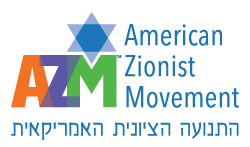Peter Adelman’s essay submitted for the Helyn B. Reich Memorial Scholarship

A defining experience for me in developing a connecting with Zionism occurred in January of 2009. I was walking in downtown Chicago with a few friends when we walked through a rally protesting against Israel’s war with Hamas in Gaza. Protestors carried signs with swastikas and defaced Stars of David. Religious slurs were shouted at no one in particular. I was shocked. I have always been proud of my Jewish heritage, but was not as well informed regarding issues in the Middle East as I should have been. That night my friends asked me to explain the events we witnessed that afternoon and to clarify the historical context of the Israel‐Palestine conflict. I was unable to clearly articulate my thoughts. These frustrations made me realize that I needed to be well‐educated on a breadth of issues and be able to present ideas in a clear and concise manner. If an educated young Jewish person isn’t able to advocate for Jewish issues, than who is going to. To be a Zionist, a person must be able to lead, defend, and understand the issues facing Israel.
Living in Tel Aviv would provide me a chance to further my understanding regarding Israel and the Middle East and become a more effective advocate. Meeting people with different points of view will give me the chance to understand the issues from a variety of perspectives. Upon returning to the United States I expect to have a better understanding of day‐to‐day events in the Middle East and the complex issues that Israel faces every day. For thousands of years, Jewish people have sacrificed to make the world a better place for future generations. Whether it was preserving traditions during times of persecution, risking their safety to continue traditions, or saving for their grandchildren’s betterment, our ancestors did much so we could enjoy the lives that we have lived. Comparatively, not much is asked of today’s younger American Jewish generation.
The public understanding and opinions of the issues facing Israel are formulated by journalists who may be reporting with preconceived perceptions, an agenda, or a lack of resources and time. Particularly with recent anti‐Israeli sentiment rising from college campuses, the United Nations, and countries throughout the world, I believe as a Jew, it is my responsibility to present well‐informed, rational arguments in support of Israel. As Jews, we should be proud of our historical and current role.
As champions for the rights of minorities and the under‐represented. Jews have been instrumental in the movements for civil rights, gender equality, and most recently gay rights, but when anti‐Semitism and anti‐Israeli sentiments arise, all too often the global community is silent. After experiencing the rally, I became more involved in advocacy groups in order to develop a more comprehensive understanding of issues and to become a more effective spokesman for causes that I believe to be important. In particular I became involved in the Anti‐Defamation League. As the nation’s premier civil and human rights agency, the ADL advocates for tolerance and respect, along with building bridges of communication, understanding, and respect among diverse groups. Not only did I become better
informed, I also have encouraged friends and colleagues to become involved as well. I have also become involved with other Jewish organizations including AIPAC, JUF, and FIDF. I am also on the Associate Board of the Harold E. Eisenberg Foundation which raises money for cancer research as well
as provides opportunities for young people interested in real estate. Directly and indirectly, these organizations have taught me the important connection between Zionism and the Jewish Diaspora: the cultural, religious, social, and political bonds between Israel and the Diaspora hold the strength and future of the Jewish people.
